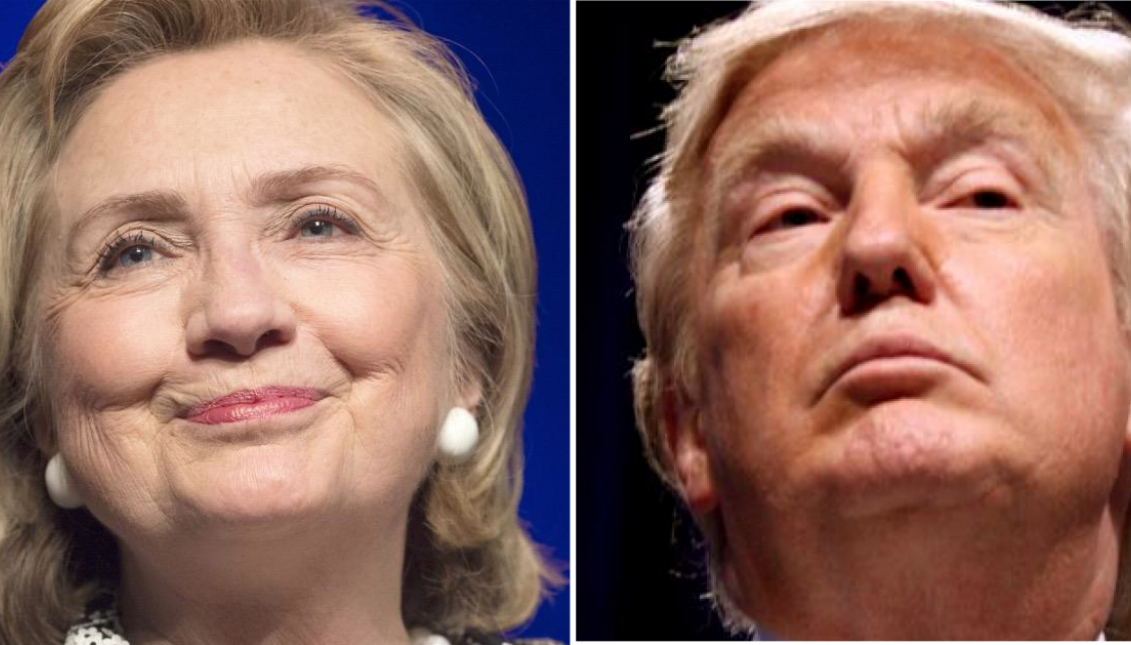
Who is in bigger trouble, the Republican Party or the Democratic Party?
MÁS EN ESTA SECCIÓN
Republican presidential candidate Donald Trump carried all but four of the states on Super Tuesday. The GOP leadership is probably not happy. In the lead-up to the multi-state primaries and caucuses, Speaker of the House Paul Ryan publicly called out the billionaire businessman for failing to denounce David Duke of the KKK — who endorsed Trump — and tried to put plenty of distance between the Republican Party and Trump where white supremacists are concerned. He also denounced Trump’s proposal to ban all Muslims from entering the United States. He stopped short of disavowing the candidate altogether, though, and tried to downplay the visible split between party stalwarts and the flamboyant frontrunner.
Senate Majority Leader Mitch McConnell also condemned Trump for “his seeming ambivalence about David Duke and the KKK,” and other Republicans — from Senators Ben Sasse and Lindsey Graham to rising star Governor Nikki Haley — have made it clear that Trump remains an outlier and is no choice of theirs to lead the party.
But the Trump steamroller keeps chugging.
It is, ironically, a problem created by the “free market” the GOP so adores: Lots of presidential hopefuls all in competition to advance themselves (while chasing the guy with a fondness for Mussolini quotes and a near monopoly on supply) and the health of the whole, in this case the GOP itself, be damned.
Commentators have noted that at this time the GOP may be undergoing a seismic shift akin to the one that rendered the Whig Party a footnote of history. (Note that the decline of the Whigs mid-1800s was heralded by the rise of the nativist Know Nothing movement with major parallels to Trump’s neo-know-nothingism.)
But Democrats should hold off on rejoicing because while their party may be bleeding out less visibly or quickly, it has deep internal damage that is leading toward its demise as well.
In keeping with its own idea that sometimes governing bodies have to step in to control the excesses of a free-market-gone-predatory, the Democratic Party has gone all in with Hillary Clinton as its medicine for what ails the nation. There are a lot of Democrats who think the medicine is not only foul-tasting but also has actively harmful side-effects — still, many of them are planning to hold their noses and vote, not for Clinton but against Trump.
But that’s not the Democratic Party’s problem. The party’s problem is that all those holding their noses (or cheerfully voting for Clinton) will be the folks from my generation and older. The young will have nothing of it, and without them the Democratic Party has no future.
The young will stay away less because of Clinton than because of the party's machinations. Party leadership is selling them the cod liver oil capsule on hand as the only possible remedy, while what young Democrats are demanding is something to set the multiple broken bones of the nation they’ve inherited.
And the truth is, that by the party leadership’s sanctimonious insistence that they know better than their own base, the Democratic Party has no bench to offer young Democrats. They’ve put all their efforts into strengthening the same old names instead of cultivating new ones — not only in candidates but in their power brokers — and the result is that for young Democrats the party machine seems every bit as tone-deaf and outmoded as Madeleine Albright & Gloria Steinem, and every bit as corrupted as the fact that Rep. Chaka Fattah — indicted on 29 counts of racketeering — would receive the endorsement of Philadelphia’s Democratic Party.
There is no love between the majority millennial supporters of Bernie Sanders and the majority boomer supporters of Hillary Clinton. Each camp has made an enemy of the other (and make no mistake, it’s been absolutely mutual and equally corrosive). The platitudes about voting for the good of the party not the candidate are, as I’ve argued, part of the problem, and without the possibility of a brokered convention — something the long primary and caucus season is contrived to prevent — both voter turnout and the possibility of cross-over voting looks grim.
What doesn’t move, dies. It’s true for sharks and it’s true for political parties. Without the younger and undeniably enthusiastic Democrats we’ve seen this season in Sanders' camp (and in President Obama’s camp the two presidential elections prior), the party will soon be as geriatric and incapacitated as the voters it will manage to retain.
Who would have predicted that the Republicans would have too many options (and all the diversity of candidates), the Democrats too few (and all the old white folk)?
As I see it, both parties are being undone by a kind of authoritarianism — of the right and of the left — and it is exactly this expression of authoritarianism in each that turns them into caricatures and endangers their well-being.
In their zeal for the freedom to produce, trade and consume without checks, the Republican Party is facing leadership by a megalomaniacal despot, who takes his best-known refrains from the playbook of 20th century fascists and 19th century Know Nothings.
In their zeal to do put the perceived good of the many ahead of the good of the individual, the Democratic Party has squelched any but their most normative talents, worked to delegitimize a dissenting vision, and put all of their effort into candidate who wants to be seen as a strong, wisdom-imparting abuela, while embodying the bureaucratic power elite.
Speaking yesterday with a very active Republican woman of color, I posed the question of this headline — which party is in bigger trouble?
The Republican Party, she answered sadly.
But I — a Democratic Latina with opinions — am not so sure.
Trump will be a disaster and utterly destructive for America as a nation if he ends up in the White House, but he will not destroy the Republican Party. I think it’s likely that a post-Trump GOP will, ironically, be more like the Democratic Party in that it will shift from the cult of the individual to the cult of the party. If Clinton ends up in the White House, in my view, the nation will be much less disastrously impacted, but the Democratic Party will have gained the presidency by sacrificing its young and so starts an inexorable slide into irrelevance by attrition.
The current political ecosystem is fragile. And healthy ecosystems — natural or societal — require diversity. Not the authoritarian monoculture that Trump threatens to produce in our nation if he is elected. Not the authoritarian monoculture the Democratic machine threatens to enforce within its ranks. But genuine diversity and equity of voice.
Why is that too much to ask?






DEJE UN COMENTARIO:
¡Únete a la discusión! Deja un comentario.